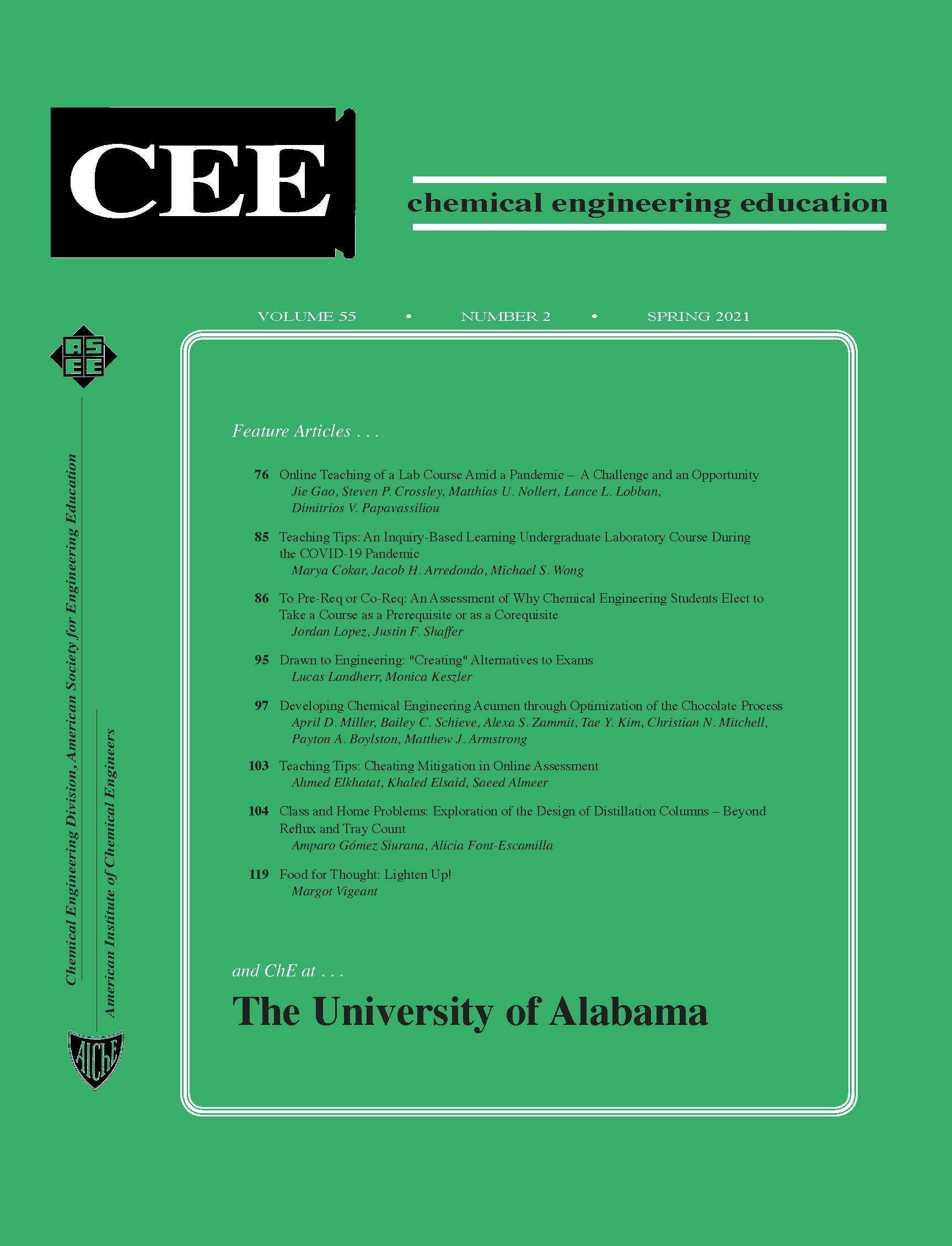An Inquiry-Based Learning Undergraduate Laboratory Course During the COVID-19 Pandemic
DOI:
https://doi.org/10.18260/2-1-370.660-126873Resumo
Inquiry based learning (IBL) has gained popularity as a tool for teaching science courses such as chemistry, biology, physics and engineering. This accelerating popularity is driven by technological advancements that allow IBL to be supported in the modern classroom1. The purpose of IBL is to trigger the student’s curiosity and encourage them to ask questions. The student’s role has become more active with technological advancements and access to multiple sources of information2. In light of this, the chemical and biomolecular engineering department at Rice University has adopted IBL in the undergraduate teaching laboratory courses. We implemented a flipped classroom model where students watched a 15-minute video then took a short quiz on safety and theory before they attended the first laboratory session. The IBL model focuses on the student to drive the question inquiry process, by engaging and motivating them to evaluate new information pertaining to that knowledge. The laboratory experiment objectives were non-prescriptive allowing the students to develop their own methods for conducting the experiments.
During the spring of 2020, we had all of the IBL course structure in place, and it aided significantly in our shift to “virtual classrooms” after Rice University closed its campus in the wake of the COVID-19 pandemic. By re-designing the undergraduate lab course using IBL principles, we fortuitously gave ourselves built-in flexibility to go to emergency virtual format in Spring 2020, and virtual format in Fall 2020. This also allows us to go hybrid or full in-person in the future. We provided students with laboratory data so that they could continue the analysis at home. However, students were not able to conduct appropriate experimentation, which is one of the key learning objectives for the laboratory courses.


